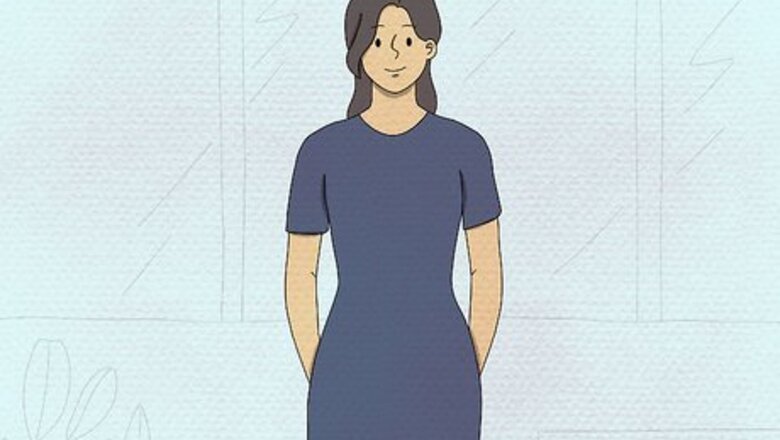
views
Fashion For Women

Select a modest, semi-formal dress. While wearing a formal pantsuit is acceptable in some communities, it’s frowned upon in others. If you’re unsure which community your host belongs to, you can either call them to ask or check out their synagogue’s website. Otherwise, play it safe and opt to wear a conservative semi-formal dress that is knee-length or longer. What qualifies as a semi-formal dress? A semi-formal dress is classy and elegant, often made with a fancy material such as silk, lace, or satin. If you’d wear the dress to a dance club, it’s likely either too much like a cocktail dress or too casual. If it could be mistaken for a ball gown, you’ve gone too far! Aim for understated sophistication. While there’s no traditional color for bar mitzvah dresses, it’s common to wear clothing with a neutral or dark color palette. In some ultra-Orthodox communities, women are discouraged from wearing bright shades. You should fit in nicely if you choose a dress that’s navy blue, black, burgundy, ivory, or brown.

Cover your shoulders. In most synagogues, showing your shoulders would be considered immodest. You’d certainly stand out in a strapless or sleeveless dress, but probably not in the way you want. If your dress doesn’t have sleeves, put on a cardigan or shawl while in the synagogue. In Orthodox communities, women are expected to wear dresses with sleeves that are at least elbow length. When in doubt, wear a long-sleeved dress or bring a cardigan.
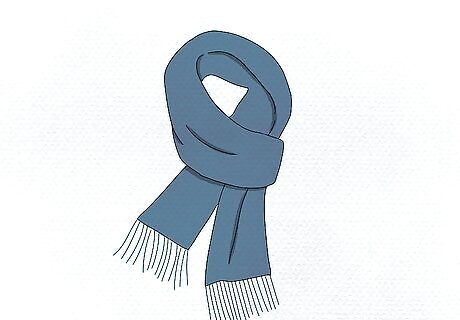
Bring a scarf or shawl. In some synagogues, it’s traditional for married women to wear hats, lace head coverings, or scarves over their hair. The synagogue may provide lace doilies to wear, but it doesn’t hurt to be prepared by bringing your own scarf or shawl. There really isn’t a right or wrong way for a woman to wear a head covering, so however you choose to wear it is fine.
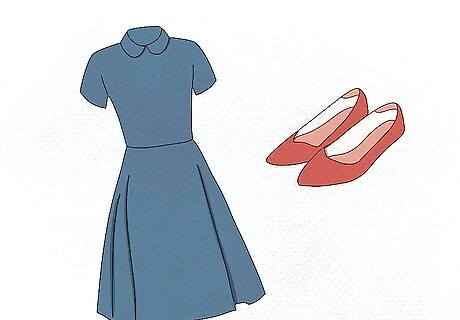
Balance looking nice with feeling comfortable. A bar mitzvah ceremony is between 1-2 hours long, and there will be a meal or celebration afterward. Consider your physical comfort when selecting an outfit, because you’ll be wearing it for several hours. For ultra comfort, pair a flowing or A-line dress with a pair of satin flats.
Outfits For Men

Dress in formal business attire. It’s best to wear a suit. At a minimum, you should wear a dress shirt, slacks, and a tie. Select the same type of clothing you would wear to an important business meeting. While you want to look classy, there is such a thing as being too overdressed, so leave your tuxedo at home in the closet! Skip the flashy colors and stick with a conservative color scheme. Dark colors like black, navy, and gray are best.

Opt for an understated look. Your Looney Tunes tie and polka-dot socks are fun, but they’re not appropriate for a sacred ceremony. It’s best to avoid loud prints and gimmicky clothing choices. When it comes to accessories, pass on the cufflinks and pocket square. Keep it low-key with minimal accessories, such as a watch.
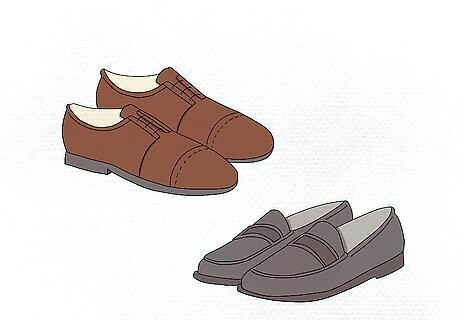
Wear dress shoes. Casual shoes and sneakers aren’t formal enough for this religious service. Oxfords or loafers are excellent options. Remember to polish your shoes beforehand if necessary.
Accept a Kippah, Decline a Tallit
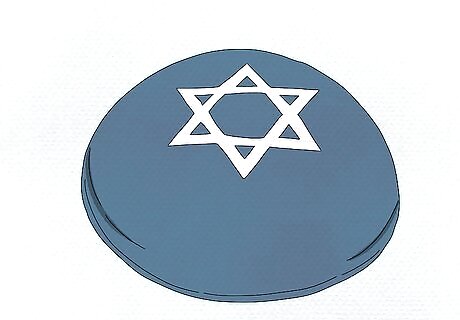
Put on a kippah. Men will most likely be offered a kippah at the door. (In some liberal communities, women also wear a kippah.) A kippah is a head covering that is a non-denominational sign of respect. You don’t need to be Jewish to wear a kippah, and putting it on when offered is considered polite. To wear a kippah, place it on the crown of your head. It should only cover the back or top of your head, not your forehead. Some people secure the kippah with a bobby pin or hair clip; they may have some available at the synagogue, or you can bring your own. A kippah is also referred to as a yarmulke.
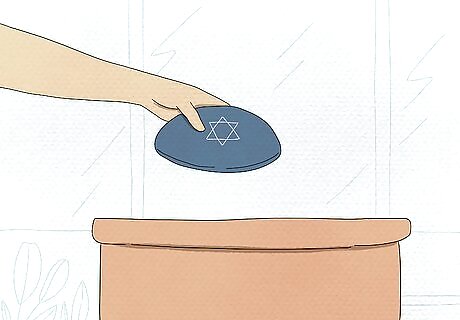
Keep the kippah if it is personalized for the occasion. They’re often custom-made for the special day. If it’s customized, keep it; if not, return it to the basket by the entrance after the ceremony.
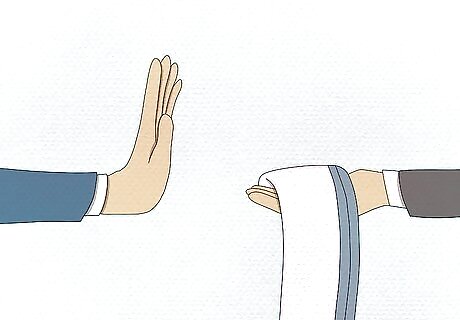
Decline a tallit if you are not Jewish. Jewish men wear a tallit, or prayer shawl, as a reminder of the commandments of Judaism. If you are offered one at the door, politely decline.
Synagogue Etiquette

Save the gifts and money for the celebration. Don’t bring presents or money with you to the synagogue. Bar mitzvahs are held during the Sabbath (Shabbat), and handling money is frowned upon. Either have the gift delivered to the house, or bring it to the reception celebration later.
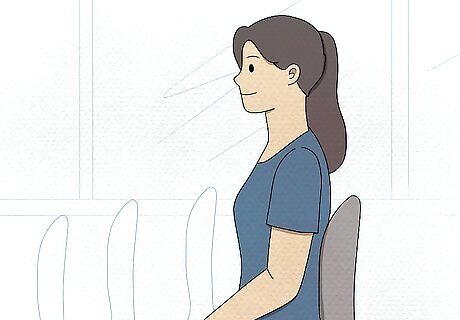
Arrive early to find a seat. The time printed on the invitation is when the service starts, so you’ll want to already be settled in by then. In many synagogues, men and women sit in separate sections, so take note of that before choosing a seat.
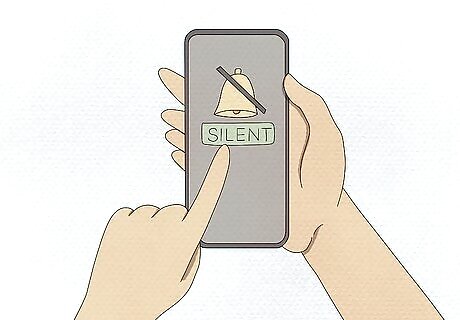
Keep your phone out of sight. Fiddling with your phone during the service is impolite. Check to make sure your phone is silenced before entering the synagogue, then leave it in your pocket. Given the sacred nature of the ceremony, no photos are allowed. Given the sacred nature of the ceremony, no photos are allowed. In some traditional communities, photography is strictly forbidden on Shabbat.
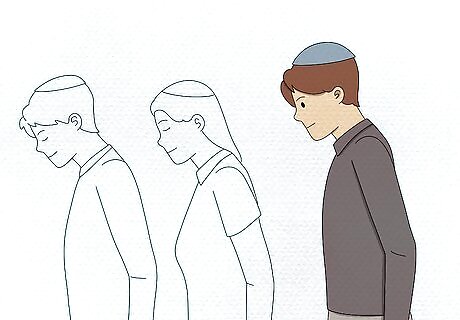
Follow the crowd. During the service, there will be times when people stand or sit. Following along doesn’t indicate religious conviction, it simply shows respect. However, bowing has more religious significance, so you can skip that part if you want. It’s okay if you don’t do everything perfectly, nobody expects a visitor to know exactly what to do. Simply trying is enough to demonstrate respect.
Attending the Reception

Give a gift. Money is the most common bar mitzvah gift, and it’s traditionally given in multiples of 18. At the lower end of the scale, $54 USD is an acceptable gift, although many adults give $108 USD each. The number 18 (or “chai”) is a symbolic number in Judaism that represents life and luck. Other gift ideas include jewelry (such as a Star of David pendant), books (especially with Jewish themes), and Judaica (Jewish ritual objects), such as a tzedakah (charity) box.
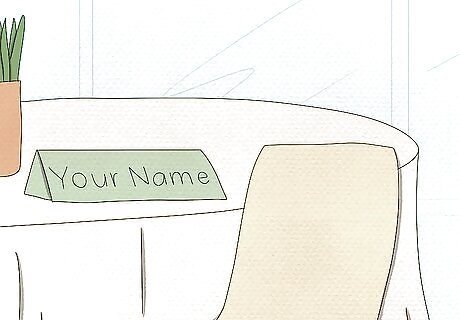
Find your seat. As with many weddings, a bar mitzvah celebration will often have tables with assigned seats. Check for a place card with your name on it. Don’t swap out seating assignments, as they were carefully planned out by the host.
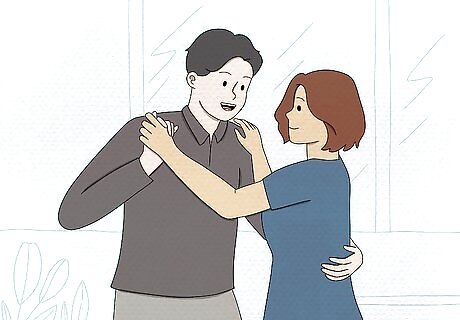
Hit the dance floor. Dancing is a big part of a bar mitzvah celebration. Dancers hold hands and form a circle, bouncing around the bimah (the table from which the Torah is read). Sometimes the guest of honor will be lifted in his chair during a dance. You don’t have to know any fancy steps, so feel free to join in the fun!



















Comments
0 comment